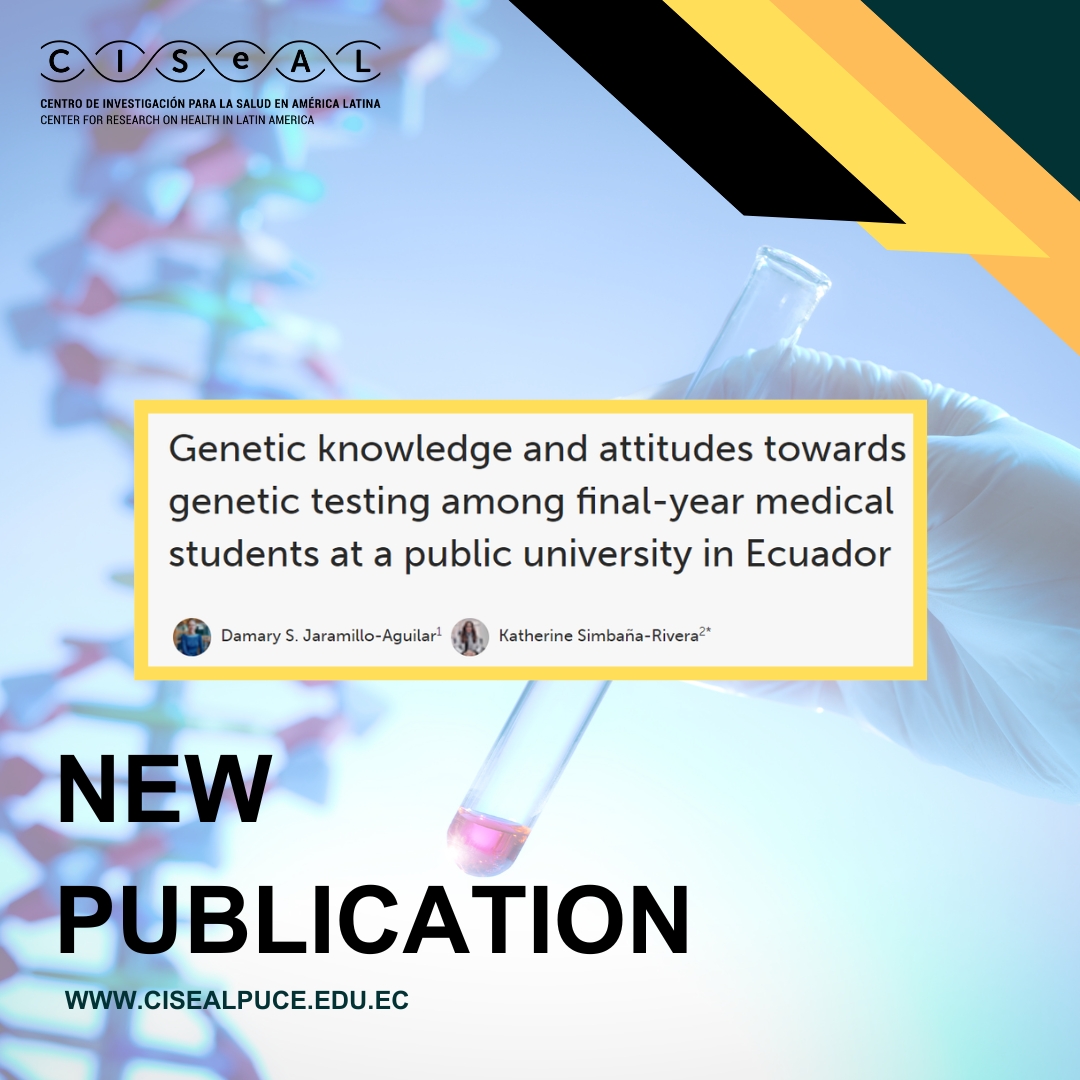 Genetics is a fundamental discipline within biology that studies the structure and function of genes, genetic variability and inheritance in living organisms. Since the launch of the Human Genome Project (HGP) in the 1980s, which sought to decipher the chemical composition of the human genetic code, the importance of genetics in the biological and health sciences has been underscored. Despite technological and research advances in genetics, numerous studies have shown that health professionals have limited knowledge about personalized medicine, genetic testing and interpretation, and genetic counseling. This lack of knowledge directly affects medical practice, resulting in inappropriate referral of patients to specialized services and incorrect treatments. Training in genetics during the university career is crucial, however, there are many deficiencies in the teaching-learning process in this area.
Genetics is a fundamental discipline within biology that studies the structure and function of genes, genetic variability and inheritance in living organisms. Since the launch of the Human Genome Project (HGP) in the 1980s, which sought to decipher the chemical composition of the human genetic code, the importance of genetics in the biological and health sciences has been underscored. Despite technological and research advances in genetics, numerous studies have shown that health professionals have limited knowledge about personalized medicine, genetic testing and interpretation, and genetic counseling. This lack of knowledge directly affects medical practice, resulting in inappropriate referral of patients to specialized services and incorrect treatments. Training in genetics during the university career is crucial, however, there are many deficiencies in the teaching-learning process in this area.
In Latin America, genetics education in medical programs and its research in the general population are limited, due to health disparities, lack of genetic resources and regulations on genetic information management, and limited participation of health professionals in the subject. A previous study in Ecuador evaluated the basic knowledge of genetics in students of various disciplines, but the results are not representative of other institutions or specialized students such as medical students. This study, conducted by our CISeAL researcher Katherine Simbaña-Rivera and Dr. Damary S. Jaramillo-Aguilar, focused on determining the knowledge and attitudes towards genetic testing in final year medical students at a public university in Ecuador.
A cross-sectional study was conducted through an online survey, applied to final-year medical students at a public university in southern Ecuador. The sample was calculated at 153 students, considering a confidence level of 95% and a margin of error of 5%. A simple random sampling technique was used and reminders were sent by e-mail to encourage participation.
The questionnaire used was the third Spanish version of the internationally validated Genetic Knowledge and Attitudes Survey (iGLAS 3). The survey covered sociodemographic characteristics, knowledge of genetics and attitudes towards genetic testing. The results showed that 75.2% of the students had intermediate knowledge of genetics, while only 9.80% had high knowledge. Attitudes toward the clinical and therapeutic application of genetics, scientific advances, access to conventional medicine, and other related topics were appropriate.
In conclusion, most final-year medical students at a public university in Ecuador have an intermediate knowledge of genetics and a positive attitude toward genetic testing. However, it is crucial that institutions of higher education conduct a thorough analysis and restructure their curricula to better prepare students for the medical and technological challenges of the 21st century.
We invite you to review the full article at the following link:
https://www.frontiersin.org/articles/10.3389/fmed.2024.1363552/full



